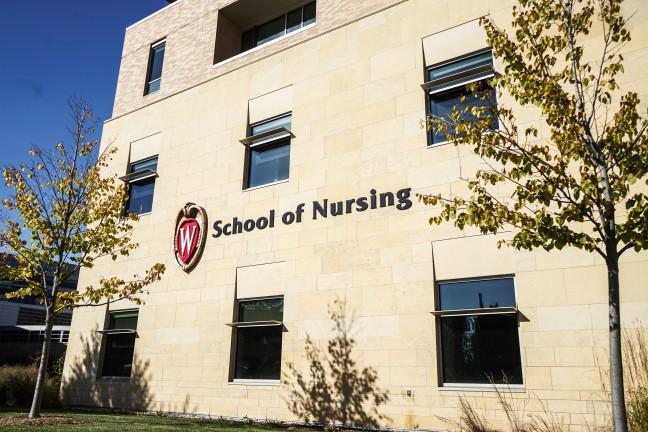With Wisconsin facing a shortage of nurses in the coming decades due to the aging population of the state, the University of Wisconsin School of Nursing is looking to fill the gap with their accelerated program geared toward educating nurses in a timely manner.
What first prompted the proposal for this program — which will launch May 2018 — was the realization that more nurses need to be educated quicker to help offset the critical nursing shortage in Wisconsin and across the nation, said Karen Mittelstadt, UW School of Nursing assistant dean for academic affairs.
The accelerated program will allow nurses to be educated and graduate in one year as opposed to the two years a traditional program takes, Mittelstadt said.
Each year, 160 nursing students graduate from UW’s traditional bachelor of science nursing program. The accelerated program would allow for the graduation of an additional 32 nursing students per year from the UW nursing school.
Earning a spot in the program during its inaugural year was competitive, Mittelstadt said.
“We received 113 applications for the 32 spots in the class for this first May 2018 cohort,” Middlestadt said.
Nursing School launches accelerated undergraduate program to meet demands of shrinking workforce
The 32 additional nurses graduating from the accelerated program will help mend the projected gap in nursing staff in Wisconsin, since 85 percent of UW nursing school graduates live and practice within the state, Mittelstadt said.
According to the Wisconsin State Journal, in south-central Wisconsin alone, there is a projected 8 percent increase in nursing openings from 2014-25, totaling about 283 openings annually. The anticipated rise in the retirement of nurses in Wisconsin can be attributed to more than one-third of Wisconsin registered nurses being 50 years old or older, according to a public policy forum.
“The additional accelerated BSN students will help offset what is projected to be a shortage of registered nurses anticipated to grow to nearly 20,000 nurses in Wisconsin by 2035,” Mittelstadt said.
Wendy Crary, associate professor and the accelerated nursing program coordinator, is excited about the doors the accelerated program will open for its graduates.
The nursing school will be streamlining the path for students, Crary said. The plan is to increase the enrollment of students in the accelerated program each year as interest in the program grows.
“I am truly excited by the tremendous possibilities this program [holds] for filling nursing vacancies with well-prepared UW students,” Crary said.
UW looks to create ‘educational pipelines’ for students interested in health care
Students who qualify to apply for the accelerated program must have already earned a bachelor’s degree, as well as completed nursing school prerequisite courses. It is also important students applying for the accelerated program have committed to focusing their time and energy on their studies, Crary said.
The curriculum of the accelerated program is based on the traditional nursing program, with some courses modified into an accelerated format, Crary said. Students will have the same access to resources as nursing students completing the traditional program.
“It’s a rigorous, fast-paced program with students spending an average of 50 to 55 hours per week in class, clinical rotations, homework readings and individual and group projects,” Mittelstadt said.
Accelerated program students will complete 49 total credits within the program, amounting to about 18 credits per term, Mittelstadt said. Student’s coursework would continue through traditional university breaks, with a week off in the fall, winter and spring.
Despite being a new program, Crary emphasized accelerated nursing program students will have the full support of the UW School of Nursing staff, including the academic office and senior leadership support.
“The enthusiasm and concerted effort of the School of Nursing leadership team, faculty members and the Academic Office has made what was simply a plan three years ago become a well-received reality today,” Crary said.


















